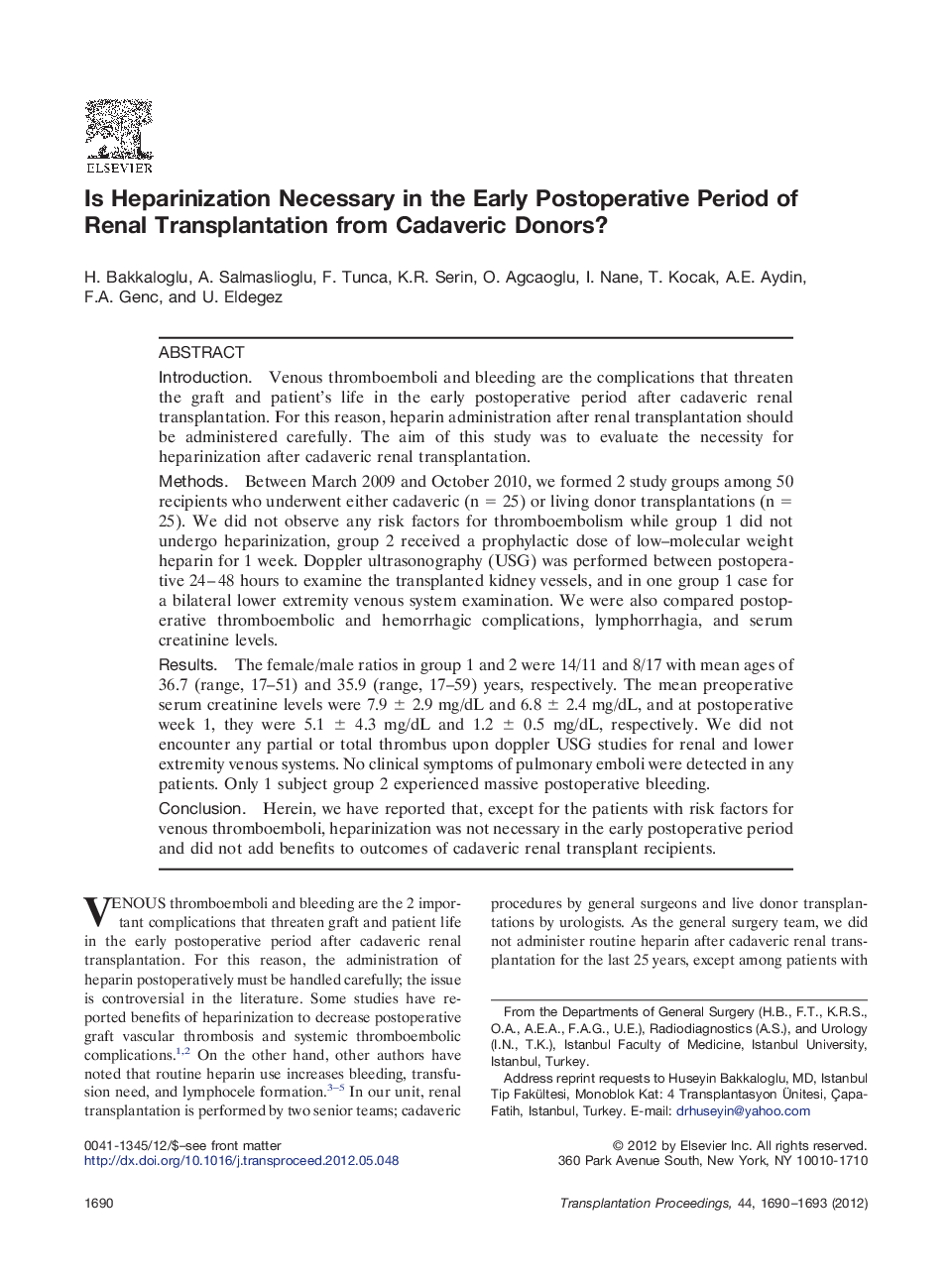| کد مقاله | کد نشریه | سال انتشار | مقاله انگلیسی | نسخه تمام متن |
|---|---|---|---|---|
| 4259937 | 1284577 | 2012 | 4 صفحه PDF | دانلود رایگان |

IntroductionVenous thromboemboli and bleeding are the complications that threaten the graft and patient's life in the early postoperative period after cadaveric renal transplantation. For this reason, heparin administration after renal transplantation should be administered carefully. The aim of this study was to evaluate the necessity for heparinization after cadaveric renal transplantation.MethodsBetween March 2009 and October 2010, we formed 2 study groups among 50 recipients who underwent either cadaveric (n = 25) or living donor transplantations (n = 25). We did not observe any risk factors for thromboembolism while group 1 did not undergo heparinization, group 2 received a prophylactic dose of low–molecular weight heparin for 1 week. Doppler ultrasonography (USG) was performed between postoperative 24–48 hours to examine the transplanted kidney vessels, and in one group 1 case for a bilateral lower extremity venous system examination. We were also compared postoperative thromboembolic and hemorrhagic complications, lymphorrhagia, and serum creatinine levels.ResultsThe female/male ratios in group 1 and 2 were 14/11 and 8/17 with mean ages of 36.7 (range, 17–51) and 35.9 (range, 17–59) years, respectively. The mean preoperative serum creatinine levels were 7.9 ± 2.9 mg/dL and 6.8 ± 2.4 mg/dL, and at postoperative week 1, they were 5.1 ± 4.3 mg/dL and 1.2 ± 0.5 mg/dL, respectively. We did not encounter any partial or total thrombus upon doppler USG studies for renal and lower extremity venous systems. No clinical symptoms of pulmonary emboli were detected in any patients. Only 1 subject group 2 experienced massive postoperative bleeding.ConclusionHerein, we have reported that, except for the patients with risk factors for venous thromboemboli, heparinization was not necessary in the early postoperative period and did not add benefits to outcomes of cadaveric renal transplant recipients.
Journal: Transplantation Proceedings - Volume 44, Issue 6, July–August 2012, Pages 1690–1693